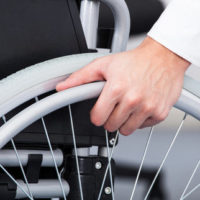Supreme Court Says Students With Disability Claims can File in Federal Court

In February, the U.S. Supreme Court issued a decision that will have important repercussions for students with disabilities. According to the Court’s unanimous opinion, students are now permitted to file a claim in federal court under the Americans with Disabilities Act (ADA) without first being required to request an administrative hearing under the Individuals with Disabilities Education Act (IDEA). However, plaintiffs are only permitted to skip this step when the claim is related to a discrimination issue, and not the adequacy of the education received. If you have questions or concerns about how the recently published opinion affects your rights and responsibilities, it is important to contact an experienced disability discrimination attorney who can evaluate your case.
Federal Law
The IDEA requires schools to offer tailored education and services to students with qualifying disabilities to help them meet their educational objectives. On the other hand, the ADA prohibits discrimination against those with disabilities in any public or federally funded program. Prior to Fry v. Napoleon Community Schools, it was difficult for students to file disability discrimination claims directly in federal court. This was because earlier decisions had stated that all education-related claims required the plaintiff to go through IDEA’s administrative hearing process before they could file suit, even when the claim did not involve an educational service or support, but disability discrimination.
Fry v. Napoleon Community Schools
The plaintiff in this case was a child who had a severe form of cerebral palsy and used a service dog to help with day-to-day activities, such as closing and opening doors and turning on lights. When the plaintiff started school, her parents asked that she be able to use the dog in the classroom. The school refused and the plaintiff’s parents filed a claim with the U.S. Department of Education’s Office for Civil Rights (OCR). After investigating the matter, the OCR decided that the school had discriminated against the child and the family filed a suit in federal court. The lower court dismissed the case, arguing that because the claim involved education, the plaintiff was required to first go through the procedures required by the IDEA.
In its opinion, the Supreme Court disagreed with the lower court, stating that students do not have to exhaust administrative proceedings when the heart of their claim does not concern IDEA’s free and appropriate public education (FAPE) requirement. The Court also offered some guidance on how plaintiffs can determine whether the FAPE requirement is the essence of a claim by providing the following example. According to the court, a student who uses a wheelchair and does not have an accessible ramp can file under the ADA because the issue does not concern the child’s education. On the other hand, a student who had a learning disability, but was not able to receive tutoring would have a FAPE-related claim and would need to go through the administrative process.
Although the case did not clarify all of the issues regarding students and filing disability claims, it does resolve some of the confusion surrounding when students can file claims directly in federal court.
Contact an Experienced Disability Discrimination Attorney Today
To learn more about your own rights under the ADA and IDEA, please contact us at Saady & Saxe, P.A. in Tampa by calling 813-909-8855 to set up a consultation with an experienced and compassionate disability discrimination attorney today.
Resource:
supremecourt.gov/opinions/16pdf/15-497_p8k0.pdf
